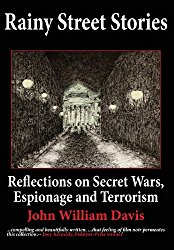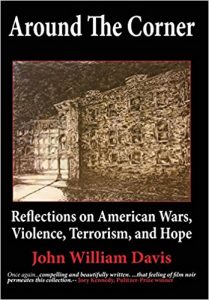Book Review by John Davis
The Million-Dollar Man Who Helped Kill a President, by Christopher Lyle McIlwain, Sr.; Savas Beatie LLC: California; $32.95, hardback (available on Amazon)
A more thoroughly researched true mystery you’ll never read. George Washington Gayle and the Assassination of Abraham Lincoln is no marginal revisionist history. Author and decades long lawyer Christopher Lyle McIlwain, of Tuscaloosa, Alabama, has plumbed the documentary depths of contemporary and modern research into the most notorious assassination of the Nineteenth Century.
McIlwain has published awarded Civil War histories, but this will be his most intriguing, because he’s unearthed mountains of facts previously unexplored as part of the infamous attack. It reveals actual events those living when Lincoln was shot knew about, but which we are only now discovering.
An historian, McIlwain has spared no effort in distilling factual, mutually reinforcing information. He concludes that George Gayle, Alabamian and wealthy ‘secessionist fire eater’, may have helped kill Lincoln. A lawyer, McIlwain also offers his own, carefully constructed case to show how Gayle could have done it; how he nevertheless really escaped execution due to bizarre, thoroughly unforeseen events. He concludes as to why he was given a Presidential Pardon and what prevented his being numbered with the slain conspirators. You too can make a judgment. McIllwain lays out the facts about Gayle which were buried because the prosecution was after Jefferson Davis as the key conspirator.
Indeed the true strength of McIlwain’s argument is his thorough, cohesive narrative on how things could have happened. Gayle, in November 1864, with our Civil War winding to its brutal, horrific end, published an advertisement in his local Selma newspaper. In it he proposed a million dollars to the person(s) who would kill in one strike Lincoln, his Vice President Andrew Johnson, and his Secretary of State William H. Seward. What follows is an ‘incredible yet true’ roller coaster ride through the vicissitudes of the war and how they affected Alabamians, the real (or not?) appeal of the money offered, and the widespread knowledge of this offer at the time.
To be sure, the very cold blooded nature of the proposal shocked Northern papers which heard of it. When the deed was done, they shouted for Gayle’s head as well. We read the vague, yet ominous words of the conspirators who spoke of ‘wealth’ and how they’d be ‘rich men’ once they’d killed their prey. Their prey, in fact, were significantly the very three men mentioned in the Selma paper. We discern how this strange Alabama advertisement might have reasonably impacted the plots by John Wilkes Booth and his gang of misfits. McIlwain is straightforward when he has no clear connection, but shows how facts support certain conclusions nevertheless.
Then we come to the ‘arrest, guilty plea, and presidential pardon’ of Gayle. How this came about validates the foregoing case which McIlwain built. He admits, as a good lawyer, that he offers only circumstantial evidence. He then argues that had impacting events happened sooner, or not so inconveniently for political reasons, Gayle’s fate could have been much, much different. We could know of George Gayle as one of the hanged conspirators.
Book Review by John Davis
Read More from John
 John William Davis is a retired US Army counterintelligence officer and linguist. As a linguist, Mr. Davis learned five languages, the better to serve in his counterintelligence jobs during some 14 years overseas. He served in West Germany, Italy, and the Netherlands during the Cold War. There he was active in investigations directed against the Communist espionage services of the Soviet Union and Warsaw Pact. His mission was also to investigate terrorists such as the Red Army Faction in Germany, the Red Brigades in Italy, and the Combatant Communist Cells (in Belgium) among a host of others.
John William Davis is a retired US Army counterintelligence officer and linguist. As a linguist, Mr. Davis learned five languages, the better to serve in his counterintelligence jobs during some 14 years overseas. He served in West Germany, Italy, and the Netherlands during the Cold War. There he was active in investigations directed against the Communist espionage services of the Soviet Union and Warsaw Pact. His mission was also to investigate terrorists such as the Red Army Faction in Germany, the Red Brigades in Italy, and the Combatant Communist Cells (in Belgium) among a host of others.
His work during the Cold War and the bitter aftermath led him to write Rainy Street Stories, ‘Reflections on Secret Wars, Terrorism, and Espionage’ . He wanted to talk about not only the events themselves, but also the moral and human aspects of the secret world as well.

And now recently published in 2018, John continued his writing with Around the Corner: Reflections on American Wars, Violence, Terrorism, and Hope.
Two powerful books worth reading.
Read more about them in the following Six Questions:
Six Questions with John Davis: Author of Rainy Street Stories
Six Questions with John Davis: Author of Around the Corner

